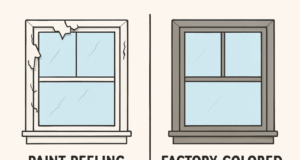NeighborWorks America offers tips to empower homeowners and renters during National Preparedness Month and all year
ashington, D.C. – RealEstateRama – As National Preparedness Month approaches, NeighborWorks America urges homeowners and renters to apply some essential tips to prepare for potential emergencies and natural disasters. Hurricane season is upon us, and many people around the country are preparing for fire season. Incorporating these tips can help people safeguard their assets and time.
- Get your financial house in order. Develop your family budget and create a savings plan to give you a cushion when disaster strikes. NeighborWorks America’s annual Housing and Financial Capability Survey showed that 61% of people have less than $5,000 saved for a financial emergency. Take other steps so you have the most direct route to your finances post-disaster. For example, make sure you have enough insurance to cover the cost to replace or repair your home, car and other valuable assets. Find out more in Navigating the Road to Housing Recovery (also available in Spanish).
- Understand your credit report and how it can affect your road to post-disaster recovery. A good credit score makes it easier for you to borrow money because it shows lenders that you have managed past borrowing responsibly. Should a disaster occur, and you need financial support to fix your home or pay a variety of bills, you don’t want anything standing in the way of that help. NeighborWorks America’s annual Housing and Financial Capability Survey found that credit presents a challenge for U.S. households. Roughly three-in-10 people have had a financial application denied due to their credit score. But there are steps everyone can take to build or repair credit and NeighborWorks network organizations around the country can help people regain a strong financial future.
- Stay alert and vigilant against scams. Scammers often try to take advantage of disaster victims and try to sell them fake solutions. But people can empower themselves by learning the warning signs of scams. NeighborWorks America launched the Stop Home Scams initiative to help protect consumers from housing scams and understand the warning signs. For example, charging for free services, fake pleas for disaster donations and phony building inspectors are some of the ways scammers may scheme people out of money after an emergency.
- Know your rights, resources and roadmap. You have rights that are protected by law. Consumer credit laws monitor creditors and are in place to protect you. Learn more about your rights in Navigating the Road to Housing Recovery and find state-by-state resources so you can learn information within your state. NeighborWorks America also offers virtual courses for professionals who want to prepare their organizations for a potential disaster. Above all, you want to keep your personalized roadmap at the forefront of every action you do. Define your desired outcome and the milestones needed to reach it.
About NeighborWorks America
For more than 40 years, Neighborhood Reinvestment Corp., a national, nonpartisan nonprofit known as NeighborWorks America, has strived to make every community a place of opportunity. Our network of excellence includes nearly 250 members in every state, the District of Columbia and Puerto Rico. NeighborWorks America offers grant funding, peer-exchange, technical assistance, evaluation tools and access to training, as the nation’s leading trainer of housing and community development professionals. NeighborWorks network organizations provide residents in their communities with affordable homes, owned and rented; financial counseling and coaching; community building through resident engagement; and collaboration in the areas of health, employment and education.
Contact:
NeighborWorks America Media
202-760-4097









